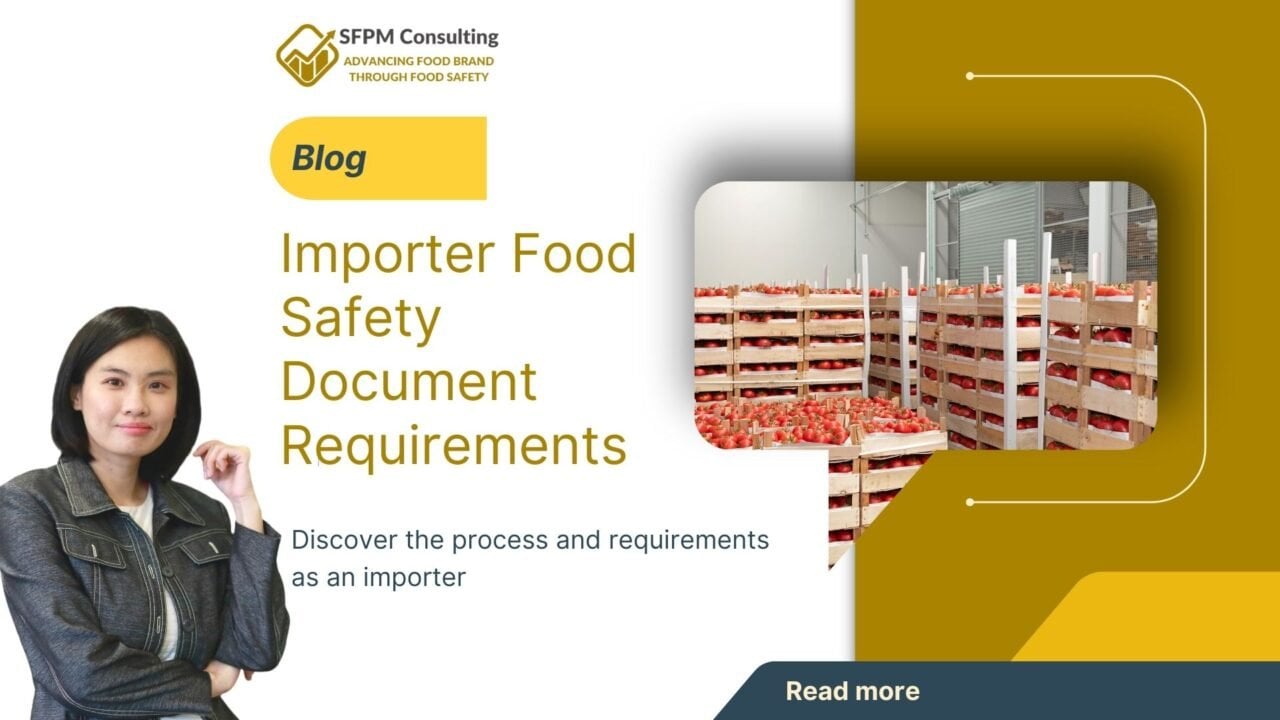Meeting Importer Food Safety Document Requirements: Key Manufacturer Information Processes and Specifications for Products and Their Role in Developing a Preventive Control Plan in Canada
Are You Looking to Import Food Into Canada?
Importing food products into Canada requires stringent regulations to ensure food safety and protect consumers. One of the crucial aspects that importers must adhere to is meeting specific document requirements, including detailed manufacturer information processes and product specifications. These details play a vital role in developing a preventive control plan, essential for maintaining high food safety standards. Let’s explore the significance and relevance of these requirements to the Canadian food import industry.
CFIA SFC license
The CFIA administers the Safe Food for Canadian regulations by issuing an SFC license for importers. When it comes to importing, only a few items are exempted.
If you require an importer preventive control plan, kindly read these carefully.
Your Responsibility as an Importer Responsibilities
As importers are the first point of contact for food products entering Canada, you are responsible for ensuring that the imported products are safe and meet regulatory requirements. You can fulfill your obligations and safeguard public health by diligently documenting manufacturer information processes and product specifications. Not knowing is not an excuse for bringing unsafe products into Canada.
Just because you see them on the shelf doesn’t mean that the CFIA has pre-approved them, and it is good to bring them into Canada.
So, you may be asking how you can comply.
What are some of the importer food safety document requirements?
We get lots of these questions.
The SFC license requirements include the Preventive Control Plan (a plan to help you explain how you meet the food safety regulations), the Traceability Plan (detail how you trace the products) and the Customer Protection Plan (detail how you meet regulatory requirements to protect customer’s right).
At SFPM Consulting Inc., we understand the complexity of these processes. So, we offer the Preventive Control Plan development for importers with the right documentation alone.
Here is a quick guide for information that we will need. We have a full course at CAD 199 for purchase, so you’ll understand the requirements.
The course is for private sale only at the moment. If you are interested, please get in touch with us.
Plus, when you become our client, you get these credits.
Let’s go through these
Manufacturer Information and Processes
Manufacturer information processes include details about the production facilities, quality control measures, and safety protocols followed by the food manufacturers. This information is essential for to ensure that the products you bring into the country have been produced in facilities meeting stringent safety standards.
This information can include food safety certificate (FSSC 22000, ISO 22000, BRC, HACCP, GMP, SQF, etc) and their report.
Product Specifications
Product specifications outline imported food products’ composition, ingredients, packaging, labelling, and storage requirements. These details are crucial for importers to verify that the products meet Canadian food safety regulations and labelling requirements.
You may also request a copy of the certificate of analysis for each batch from your supplier.
Remember, the allergens in foreign countries differ from those in Canadian requirements. Remember to review the allergen information.
Sample Canadian Labels
Canadian labels have specific formats and requirements. Ensure you review them for Canadian compliance, especially with the common name, ingredient list, nutrition facts table and importer information.
See this link for complete CFIA requirements for labelling.
We help with food product label reviews for our Importer Client only.
Find a Time with Felicia Loo to see how we can help you.
Developing a Preventive Control Plan
After you gather these documents, you are almost ready to develop your preventive control plan.
A preventive control plan is a documented plan that outlines the steps taken to identify and control potential hazards in imported food products. The manufacturer’s information processes and product specifications are the foundation for developing an effective preventive control plan.
You must ensure you have a plan for managing the food products in the event of non-compliance. Remember, as an importer, it is your responsibility to keep the food safe.
In conclusion, meeting importer food safety document requirements, including comprehensive manufacturer information processes and product specifications, is critical for importing food products into Canada. These details not only ensure compliance with Canadian food safety standards but also help you as an importer in developing a preventive control plan to mitigate potential hazards.
Importer PCP plans can be complex and difficult to navigate.
Ready to leave this task to us? And implement the program?
Click here to find a Time with Felicia Loo to see how we can help you.

